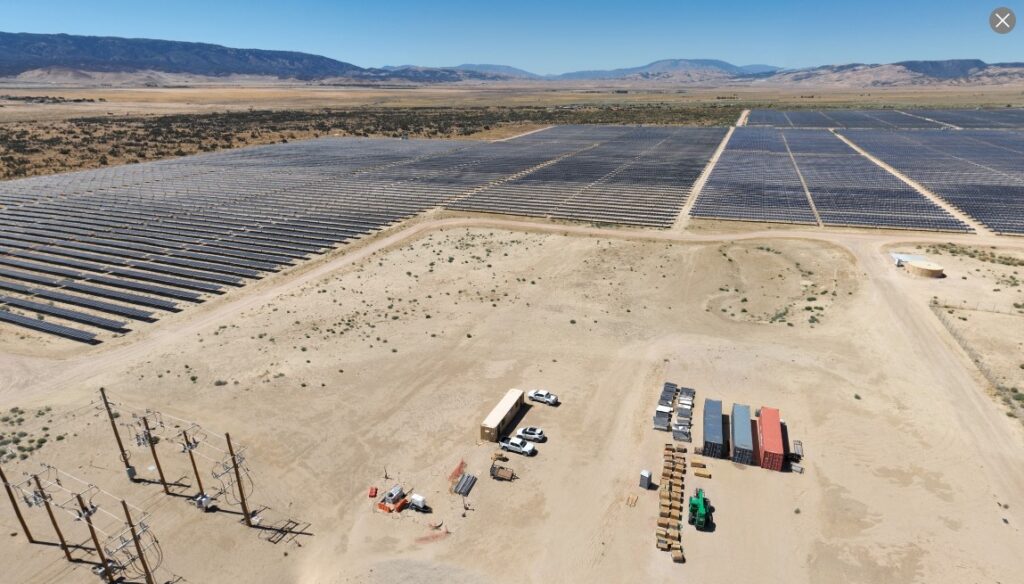“You Take Control of Your Energy Future”
By Michaela Harris / mharris@appealdemocrat.com
Representatives of the nonprofit Pioneer Community Energy presented information on municipal power aggregations to the Sutter County Board of Supervisors on Tuesday so that local officials can learn more about alternative energy supply contracts that could be implemented within the county.
Also known as community choice aggregations, these systems enable local governments to purchase electricity on behalf of customers in place of investor-owned utilities like Pacific Gas and Electric Company (PG&E).
Aggregators like Pioneer procure electricity on behalf of residential, commercial or municipal customers in their service territories. Power is then distributed and delivered by utility companies.
Pioneer currently services El Dorado and Placer counties as well as Nevada City and Grass Valley.
“We provide the electrons on the system. You’re still going to have some dependence on PG&E on the transmission and distribution side of the business. This is not the perfect solution to, say, you want to take over your own utility, but at least it gets you in the game and gives you some choice,” Pioneer CEO Don Eckert said. “You have local control. … You have a say in the generation side of the business. You take control of your energy future and you give your citizens a choice.”
By aggregating purchasing power, organizations like Pioneer are able to create large contracts with power generators and ultimately deliver reduced utility rates to customers. According to the Environmental Protection Agency, community choice aggregations are an attractive option for communities that want more local control over their electricity sources, more green power than is offered by the default utility, or lower electricity prices.
According to Eckert, there are around 24 community choice aggregations statewide and approximately 65% of PG&E’s territory is serviced by these systems. Between 2018 and 2023, Pioneer helped save $85 million for customers compared to PG&E.
In November last year, the California Public Utilities Commission approved an alternative rate proposal for PG&E, effectively increasing electricity and natural gas bills for customers by an average of $32.
Customers that are not enrolled in PG&E’s California Alternate Rates for Energy program or other utility assistance programs will see an annual 3.6% increase in their electricity and gas bill for the next three years. This will increase monthly bills by approximately 12.8% in 2024, and have a net decrease in the following years – 2025 and 2026.
Once a community choice aggregation is operational, the system is completely ratepayer funded, Eckert said. Dollars that would otherwise go to PG&E are reinvested back into the community for new energy services and programs.
According to Pioneer’s Director of Public Affairs Gina Stassi-Vanacore, Pioneer customers save at least 10% for energy generation compared to PG&E, with an average of $200 in annual savings. However, all customers continue to pay PG&E delivery charges and receive PG&E bills.
State law requires that all customers within a community choice aggregation territory be automatically enrolled to ensure fairness. Customers can opt out of the aggregation at no cost, starting at least 60 days prior to a service launch and anytime thereafter.
Solar customers are also automatically enrolled in the aggregation’s net metering program, Stassi-Vanacore said. Pioneer pays net generators a half-cent premium per kilowatt over PG&E’s rates, and net consumers receive the same discounts as non-solar customers.
Sutter County District 3 Supervisor Mike Ziegenmeyer agreed that there is a need for reduced utility rates, but expressed interest in exploring Yuba Water Agency’s possible role as a municipal power provider before entering a community choice aggregation. “PG&E earned $2.2 billion in profit after all our rate hikes,” Ziegenmeyer said. “I agree with my colleagues, but I’d like to have a serious sit down meeting with the Yuba Water Agency first. We have one of the largest water plants right next door, and at the end of the day you’re buying a tower from these people. Why should I go through you when I could go direct?”
The Yuba County Water Agency Act prevents the agency from selling power directly to residential customers.
“It specifically says that our hydropower generation mission is to be wholesale (selling to power providers) to enable our other missions – basically, to earn revenue to invest back into reducing flood risk and ensuring a sustainable water supply for Yuba County,” Yuba Water Agency Communications Manager DeDe Cordell told the Appeal. “We sell our electricity through Shell Energy to the California Independent System Operator where other energy providers purchase it.”
Should Sutter County continue its inquiry into entering a community choice aggregation, an impact assessment study will be conducted and presented to the Board of Supervisors in the coming months. Pioneer will fund half of the study’s $30,000 cost, should Sutter County move forward. This would be the only impact to Sutter County’s general fund from joining the aggregation, Stassi-Vanacore said.
Both Pioneer and Sutter County would review the results by early fall this year with each party voting to join and expand the aggregation soon after, Stassi-Vanacore said. By December this year, Pioneer would submit an implementation plan to the California Public Utilities Commission, which would vote to approve this plan by spring next year.
Sutter County District 4 Supervisor Karm Bains recommended moving forward with these next steps.
“We want to save all our neighbors money and we want to give the citizens a choice for local control,” Bains said.







